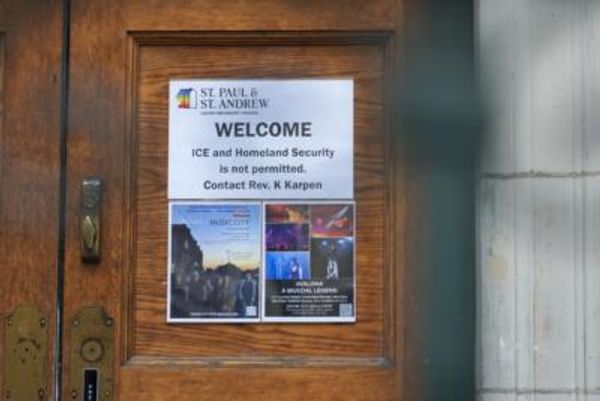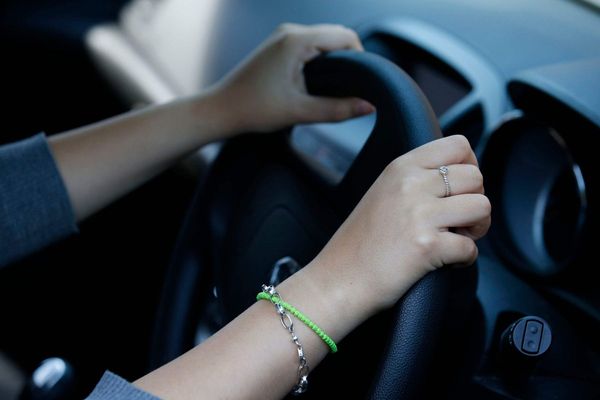PHILADELPHIA — The last weekend in January, Krista Xavier did something she described as "tremendously stupid." She went to an indoor performance at the Met Philadelphia.
Xavier, 30, has fibromyalgia and is immunocompromised. She has received two vaccines and a booster shot, but likely isn't receiving the same benefits from them as someone with a healthy immune system. COVID-19 remains a very real threat to her.
She hazards trips, always double masked, to Home Depot to pick up paint supplies, and usually takes some medical marijuana to ease anxiety over COVID-19. Still, she allowed herself that one live performance at the North Broad Street venue.
"I think I had just decided at that point," the Marcus Hook, Pennsylvania, woman said. "I was like, you know what, if this is how it happens, this is how it happens."
Even so, once she got there and saw the line wrapped around the building, she got nervous, and then the theater had a power outage, and she decided she couldn't take the chance, even to see her favorite comedy horror podcast's live version. She and her brother fled before even getting inside.
After almost a year of COVID-19 restrictions, vaccines gave many worried Americans the ability to travel, spend time with friends, and go to restaurants, confident they weren't putting themselves in too much danger. But for the immunocompromised, facing much greater odds of a deadly infection, the isolation and fear that marked pandemic life before vaccines has yet to end.
"We felt the rest of the world began to understand how we had always lived our lives," said Chuck Lage, 63, of Landenberg in Chester County, who was diagnosed with an immune deficiency in college. "But as this has changed again you tend to be forgotten."
Pharmacies are turning away immunocompromised patients seeking a fourth COVID-19 shot
They feel resentment, even anger. It was painful for them to hear public health officials say that the unvaccinated and the immune compromised were most likely to land in the hospital or the morgue during the delta and omicron waves.
"It's not encouraging to say those are the only people dying," Xavier said. "It feels honestly like the world's biggest case of FOMO and being abandoned, on like a massive scale."
The country's 7 million immunocompromised people comprise roughly 2.7% of the population. They include people whose immunity was damaged by genetics, illnesses such as HIV, rheumatoid arthritis, and diabetes, or medical treatments, including cancer therapies. Transplant patients take immune suppressants to keep their bodies from rejecting new organs, making them, too, more vulnerable to infections.
Not only are they more likely to get a worse case of the illness it causes, they are less likely to get the full protection of vaccines. Some get barely any benefit from the shots. Once vaccinated, they are three times more likely to develop breakthrough COVID-19 infections than vaccinated people with healthy immune systems, according to a study in the Journal of Medical Economics.
The Centers for Disease Control and Prevention last month encouraged some people with moderate to severely compromised immune systems to get a fourth round of doses for additional protection.
When the pandemic began, those who treat the immunocompromised feared the worst.
"Our expectations back in 2020 was that our group of patients would do terrible," said Mark Ballow, consulting medical director for the Immune Deficiency Foundation. "We're actually surprised that they've done better than expected."
Vaccines do produce some immune response in many, he said, and even those who have no antibodies can still develop T cells that prevent COVID-19 infections from becoming life-threatening.
Immune-compromised people don't respond as well to COVID-19 vaccines, but Pitt scientists found exceptions
Still, many immune compromised people are continuing to make sacrifices.
Audrey Ervin, 46, academic director of Delaware Valley University's graduate counseling psychology program and a practicing psychologist, began radiation therapy for stage one breast cancer about a week ago. The Doylestown resident canceled most in-person therapy sessions because of her new vulnerability to COVID-19, and now sees all but a few clients virtually.
"I always prefer in person," she said. "There's something really delicate about an interpersonal relationship."
Rodrigo Alarcon, 49, received a lung transplant in June 2020 because of an autoimmune disorder that attacked his lungs and esophagus. He had to be cautious before the pandemic, but adding antirejection drugs significantly increased his risk from COVID-19, doctors have said. Indoor dining at restaurants is out for now.
Alarcon, an ICU critical care tech, Lage, a former nonprofit executive, and Xavier, a former retail worker, aren't working now, as indoor jobs feel too dangerous.
"I may never be able to work inside a hospital," Alarcon, of Center City, said, "so now I have to find another career."
Being immunocompromised in the pandemic has deprived people of care, too, said Thomas Earle, chief executive of the disabled advocacy group Liberty Resources.
"They're even further isolated and deprived of services and resources that can help them," he said. "People can't go to a food pantry or soup kitchen."
The precautions the immunocompromised still must take have hurt relationships as vaccinated friends and family shed their own inhibitions.
"It has ended some friendships," Xavier said, "people that thought either I was being ridiculous or our friendship kind of fell apart over time."
She and others have built pods of people they trust to see in person, but shrinking social circles and limited activities can spur resentment.
"Honestly people are just like, 'I'm really frustrated, I'm really angry,' " said Eric Horwitz, chair of the department of radiation oncology at Fox Chase Cancer Center. "I have to say every week that's a conversation we have."
It's especially hard to deal with healthy people who won't get vaccinated. Alarcon recalled with exasperation buying rapid tests for relatives who have refused vaccination so he could see them at Christmas. Public pushback against safety restrictions like masking leads to more frustration, as have lockdowns and restrictions that might have tamped down COVID-19′s spread had they been followed. Some pharmacies even have refused to give immunocompromised people the CDC-recommended fourth vaccine dose.
"It's been profoundly dehumanizing," Xavier said. "It feels like being left behind. It feels very limiting and exhausting, frankly."
But the greatest challenge is being on constant alert.
Ervin described it as, "the fatigue of having to think very intentionally about every choice."
Add on the likelihood that COVID-19 will be with us for years, even at lower, endemic levels.
"Sometimes I feel like there's no way out," Xavier said. "Like, how am I going to have a future?"
Some treatments exist for the immunocompromised, including an antibody treatment that acts as a substitute for vaccination and provides protection against infection for up to six months, but supplies are scarce.
For the immunocompromised, what offers relief now are policy steps like Philadelphia's vaccine mandate for indoor dining. That, along with dropping case counts, is allowing Alarcon to consider dining inside again. People with immune deficiency receive gamma globulin infusions derived from blood donations to bolster their immune systems, and as more Americans are either vaccinated or have recovered from COVID-19 infections, Ballow said, those donations can contain the antibodies that protect against the virus.
"Are we going to normalize?" he said. "I guess to some degree, but with caution."
Hobbies and creative pursuits offer a solace, and moments of joy. Alarcon listens to audiobooks. Xavier gardens and converted her dining room into an art studio where she's using acrylics to paint an arid mountainside onto a large canvas.
"My work has been something that brought me tremendous joy," she said.
It also helps pay bills. Her latest work is being done on commission.
Lage spends hours in his basement, indulging his passion for sailing by building wooden model boats. He is trying to establish a model yacht museum, and races his remote controlled sailboats with others in a pond in Chester Springs. He described those trips, safely outdoors, socially distanced, as a peaceful escape.
"A bunch of people standing along the shore of a pond with these beautiful boats," he said, "not making a sound."







